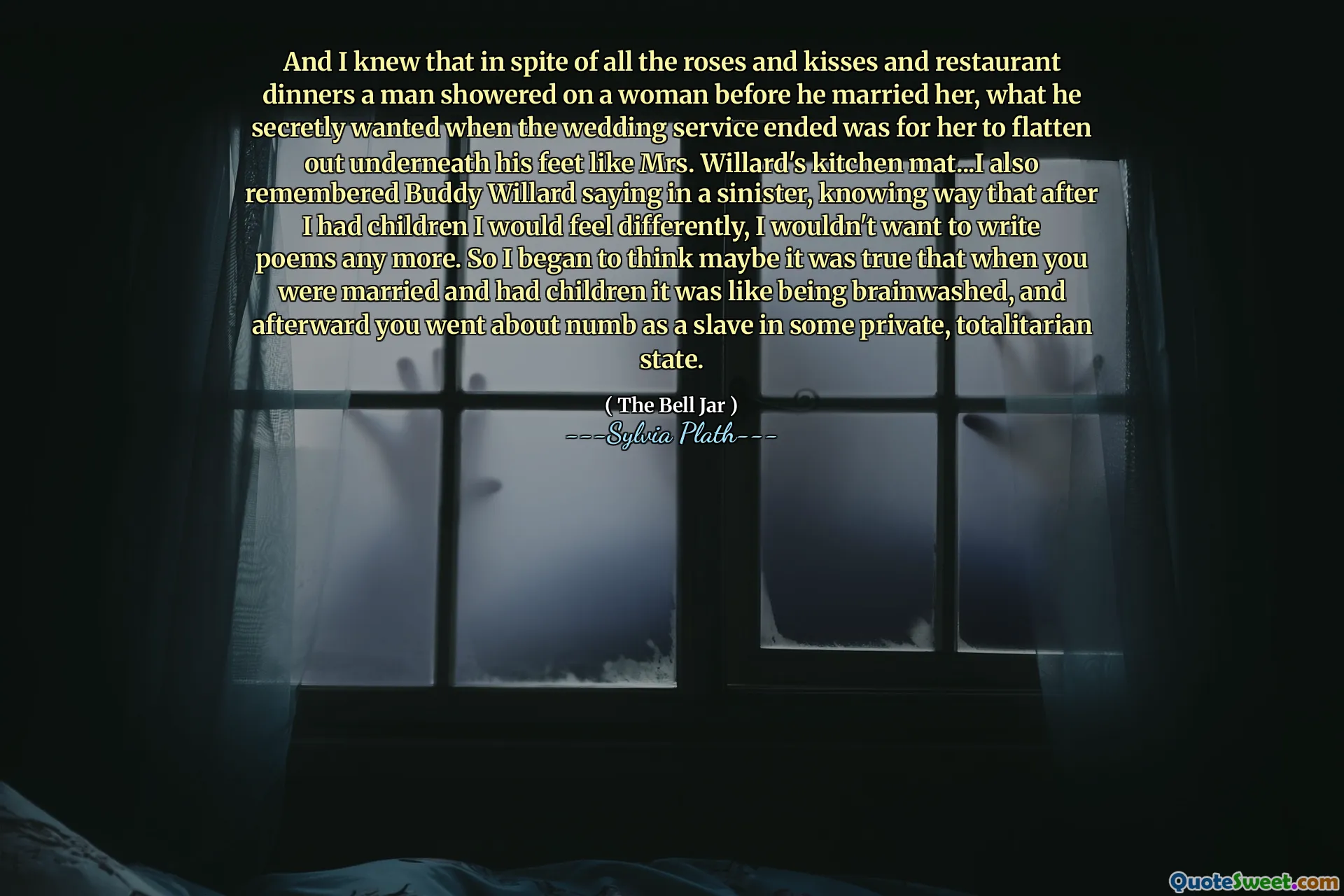
And I knew that in spite of all the roses and kisses and restaurant dinners a man showered on a woman before he married her, what he secretly wanted when the wedding service ended was for her to flatten out underneath his feet like Mrs. Willard's kitchen mat...I also remembered Buddy Willard saying in a sinister, knowing way that after I had children I would feel differently, I wouldn't want to write poems any more. So I began to think maybe it was true that when you were married and had children it was like being brainwashed, and afterward you went about numb as a slave in some private, totalitarian state.
The narrative reflects a woman's perspective on the stark contrasts between romantic ideals and the harsh realities of marriage and motherhood. She feels that the affection and lavish gestures a man offers before marriage are superficial, masking a desire for dominance and control after the vows are exchanged. The metaphor of flattening underfoot illustrates her concern about losing her identity and independence once married.
The protagonist recalls a troubling remark from Buddy Willard, suggesting that motherhood could alter her aspirations, particularly her love for writing. This leads her to ponder the transformative, and often oppressive, nature of marriage and parenting, likening it to brainwashing. The notion of becoming numb and subservient in a "private, totalitarian state" emphasizes her fears about the potential loss of self in these roles.





